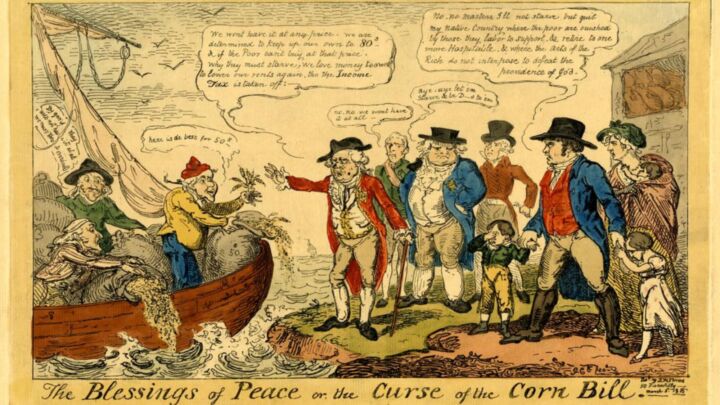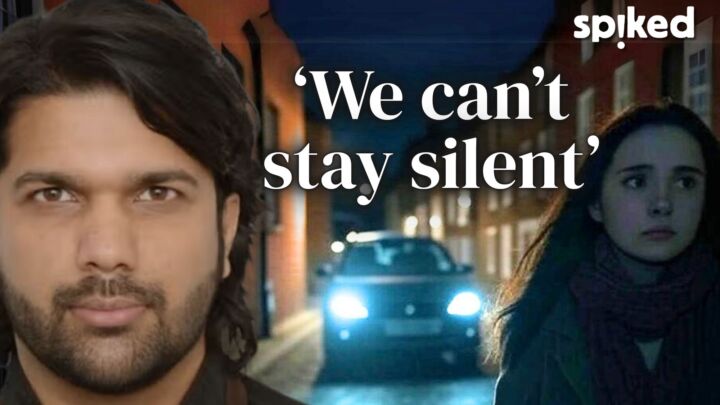A hairy moment for free speech
Tommy Sheridan’s libel win over the News of the World was no ‘victory’ for the working class. It was a victory for an archaic law over open debate.

Want to read spiked ad-free? Become a spiked supporter.
On Friday last week, by a majority of 7-4, a jury of six men and five women found in favour of Tommy Sheridan, former Scottish Socialist Party leader and MSP, in his defamation action against News Group Newspapers, publisher of the News of the World. Sheridan sued the tabloid for printing articles in 2004 and 2005 claiming he was an adulterer, had visited Cupids swingers’ club in Manchester, and had taken part in orgies. He was awarded £200,000 in damages.
Celebrating his victory outside the Court of Session in Edinburgh, Sheridan said: ‘I have over the last five weeks taken on one of the biggest organisations on the planet…. What today’s verdict proves is that working-class people, when they listen to the arguments, can identify the truth from the muck.’
But there has been no shortage of muck thrown by Sheridan himself – during and after the trial. He accused the News of the World’s 18 witnesses of perjury and branded the 11 members of the SSP who spoke against him in court as ‘scabs’. Apparently, they’ve been orchestrating a witch-hunt against Sheridan in order to bring about his political downfall.
These are the same 11 members of the SSP who refused to hand over to the court the minutes of the meeting where Sheridan allegedly admitted he had attended a swingers’ club but said he would deny it publicly because the News of the World would never be able to prove it. It was only after a former comrade and friend of Sheridan’s, Alan McCombes, was jailed for contempt that the minutes were produced.
McCombes has since issued a statement, with the backing of the SSP national executive, likening Sheridan to Jeffrey Archer and claiming he would bring down the SSP.
As commentator Magnus Linklater reminds us in an article in Scotland on Sunday, Scottish hero Robert Louis Stevenson thought there was nothing uglier than a court of law: ‘Hither come envy, malice, and all uncharitableness to wrestle it out in public tourney.’ To add insult to injury, some members of the SSP are apparently considering legal action against Sheridan over comments he made following his victory. Also, MSP Carolyn Leckie says that those whose reputations had been tarnished would welcome perjury charges as a chance to clear their names. Lothian and Borders Police yesterday confirmed they are considering whether to launch a perjury investigation.
It is hard to see who the winners are in this sorry state of affairs. Sheridan has won £200,000 in damages, subject to appeal, but whether suing has in any way helped to restore his reputation (let’s not forget that he told the court he is a hairy ape and offered to disrobe ‘if my lord will allow me’) remains to be seen.
Some members of the jury may not have been impressed with the News of the World’s defence, but then again the tabloid newspapers’ practice of ‘chequebook journalism’ rarely elicits much sympathy from members of the public today. The fact that Sheridan won the case, despite 18 witnesses testifying against him, indicates how low the media have sunk in the eyes of the public.
Sheridan is not the only famous permatanned Scottish socialist to use the UK’s libel laws in recent years. In December 2004 George Galloway, ex-Labour MP, and now an MP for the anti-war, anti-Blair party RESPECT, successfully won his libel battle against the Daily Telegraph. The paper published allegations that Galloway was in the secret pay of Saddam Hussein. After the ruling, Galloway declared: ‘I am glad and somewhat humbled to discover that there is at least one corner of the English field which remains uncorrupted and independent, and that corner is in this courtroom.’
Galloway’s uncorrupted and independent ‘corner of the English field’ has won London the reputation as the libel capital of the world. The capital is often dubbed ‘a town called Sue’. Everybody knows that the UK libel courts are used by chancers, from around the world, to launder their reputation.
Court 13 – where Galloway’s case was heard – is the place where in July 1987 the now disgraced peer Jeffrey Archer won his £500,000 libel damages from the Daily Star over allegations that he had had sex with a prostitute. Later convicted of perjury and perverting the course of justice, Archer was forced to pay the money back to the Star. It was also in Court 13 that high drama and farce were played out between Harrod’s owner Mohamed al-Fayed and former Tory MP Neil Hamilton – described during the proceedings as the meeting of a ‘habitual liar’ and a ‘politician on the make’.
Galloway and Sheridan have unfortunately given the UK’s anachronistic libel law – a law that grew out of a dissatisfaction with the old aristocratic ways of dealing with defamation through duels – a new lease of life. (The Scottish libel law is based in large part on England’s libel law, though with some minor differences.)
They, of course, see things differently, depicting themselves as brave working-class heroes fighting against the mighty media empire. Sheridan even accused the News of the World of endangering his unborn baby’s life with its lies. But it is far from brave to sue newspapers for libel. As claimants, the odds are clearly stacked in their favour, whether or not what was said about them was true – which is why the vast majority of claimants win their libel cases.
Under libel law, claimants do not need to prove that what was said about them was untrue (although Sheridan’s wife, Gail, did her bit to sow seeds of doubt in the minds of the jury by pointing out that none of the women who allegedly had affairs with Sheridan referred to his unusually hairy body). Rather, in libel law the assumption is that the defamatory statement is false, and the burden falls on the defendant to prove it is true. This reversal of the burden of proof – with the defendant pretty much guilty until he proves his innocence – is almost unique to UK libel law.
Libel laws are censorious and have a chilling effect on the whole of the media. The law does not only affect those journalists, broadcasters, editors and publishers who are faced with libel writs. If authors, editors or publishers have the smallest inkling that the truth of a proposition cannot be proven in court (even when made in good faith), the knowledge that they will have a less than a one-in-five chance of success in a libel trial means the story is most likely to be dropped.
Newspapers should have the right to publish abusive articles about politicians and celebrities, who, after all, are at the centre of public life, and who have recourse, more than anybody else, publicly to dispute unfair allegations made against them.
Some may argue that a law curtailing the freedom to publish titillating revelations about the allegedly sordid sex lives of politicians is not much of a threat to free speech. Of course, it would not be much of a loss to society if the claims about what went on between Sheridan and various women – including in Cupid’s – were never published. But as long as society is preoccupied with celebrities, whose private lives are – most often willingly – continually paraded before our eyes, we will have a media constantly searching for ever more salacious stories.
The way to deal with the dire state of public debate today is to fight for more speech and debate, not less. That means scrapping the UK’s censorious libel laws, for a start. Sheridan and Galloway’s cases are a further nail in the coffin of press freedom.
Read on:
spiked-issue: Free speech
Who funds spiked? You do
We are funded by you. And in this era of cancel culture and advertiser boycotts, we rely on your donations more than ever. Seventy per cent of our revenue comes from our readers’ donations – the vast majority giving just £5 per month. If you make a regular donation – of £5 a month or £50 a year – you can become a and enjoy:
–Ad-free reading
–Exclusive events
–Access to our comments section
It’s the best way to keep spiked going – and growing. Thank you!









Comments
Want to join the conversation?
Only spiked supporters and patrons, who donate regularly to us, can comment on our articles.